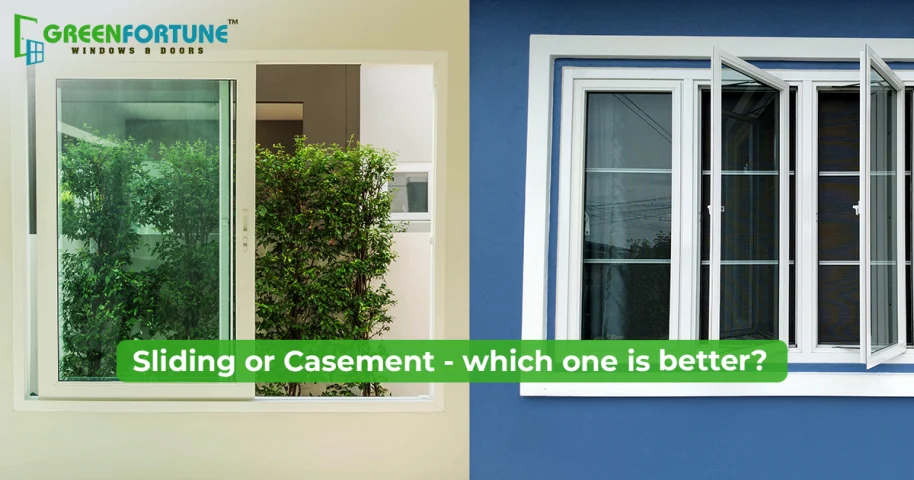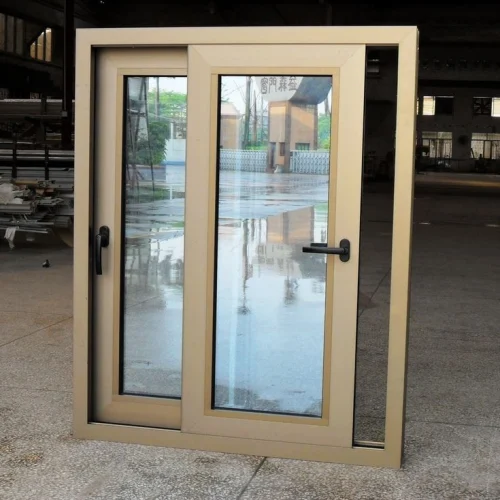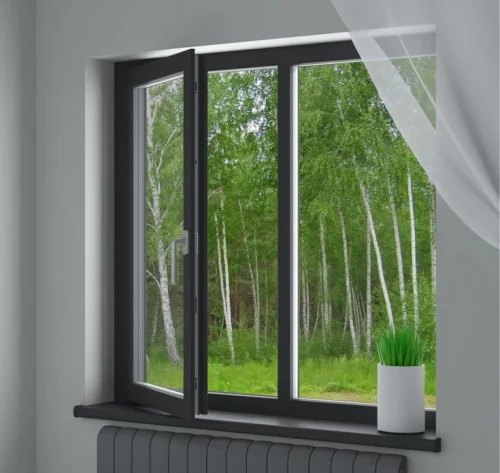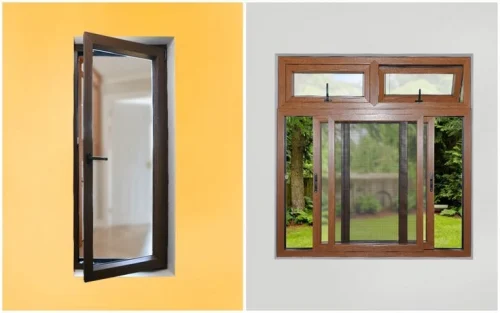
How Green Building Materials Can Make Your Home More Sustainable?
July 5, 2025
Top 10 Modern Duplex House Design Trends in India
July 8, 2025Choosing the right windows for your home might seem like a small decision, but it actually makes a big difference. The right windows affect how much light you get, how fresh your room feels, and even how your home looks from the outside. When it comes to the most popular choices, the real debate is sliding vs casement windows.
Both types are great in their own way. Sliding windows open horizontally, while casement windows swing out like a door. But which one is better for you? Let’s dive into a simple, side-by-side comparison to help you figure that out.
Table of contents
- What Are Sliding Windows?
- What Are Casement Windows?
- Which Has Better Airflow?
- Which One Is Easier to Maintain?
- Which Window Style Is More Attractive?
- Energy Efficiency: Sliding vs Casement Windows
- Space and Layout Considerations
- Security: Which One Is Safer?
- Cost: Which One Is More Budget-Friendly?
- Sliding vs Casement Windows in Different Rooms
- Pros and Cons at a Glance
- So, Which Window Should You Choose?
- Final Thoughts
- Want to Give Your Home a Modern Look?
- FAQs
What Are Sliding Windows?
Sliding windows have sashes that slide side to side on a track. They’re very similar to sliding doors. One panel stays fixed while the other moves.
Why people love them:
- They’re easy to use
- Great for wide spaces
- Modern and clean-looking
No parts swing out, so good for tight spots
What Are Casement Windows?
Casement windows are hinged on the side and swing open outward like a door. You usually open them with a crank or handle.
Why people love them:
- They offer full, clear views
- Excellent for ventilation
- Tight seals help with energy efficiency
Give a classic and elegant look
Sliding vs Casement Windows: A Simple Comparison Table
Feature | Sliding Windows | Casement Windows |
Opening Style | Slides horizontally | Swings outward like a door |
Ease of Use | Very easy, just slide | Needs a crank or push |
Airflow | Moderate airflow | Excellent airflow (full window opens) |
Best For | Wide walls, tight outdoor spaces | Tall, narrow openings with space outside |
View | Good, but the center frame is visible | Uninterrupted view |
Maintenance | Easier to clean | Harder to clean from the outside |
Security | Basic latches | Tight seal and hook-shaped locks |
Cost | Generally cheaper | Usually costs more |
Style | Sleek and modern | Classic and timeless |
Which Has Better Airflow?
When you need the best windows for airflow, casement windows are the winners. They open fully and even pick up the breeze from the outside. If you're in a hot or wet location and need more fresh air, use a casement.
Sliding windows are okay, but only one panel opens and closes. That only leaves half of the area available for airflow
- Winner: Casement windows
Which One Is Easier to Maintain?
Sliding windows are easier to clean, especially from the inside. You can remove the moving panel, clean the tracks, and you’re done. They don’t have hinges or cranks that wear out.
Casement windows are a little more work. If they swing outward on the second floor, cleaning the outside gets tricky. Also, the crank can wear out over time.
- Winner: Sliding windows
Which Window Style Is More Attractive?
This actually brings to personal preference. If you adore contemporary window designs, sliding windows are sleek and minimal. They complement minimalist or modern designs perfectly.
Casement windows appear more classic or elegant. They function optimally in traditional homes, cottages, or farmhouse-style designs.
- Winner: Tie (depending on preferred style)
Energy Efficiency: Sliding vs Casement Windows
Casement windows usually seal better than sliding ones. When you close them, the sash presses tightly against the frame, reducing air leaks. That makes them more energy-efficient and can help you save on heating or cooling bills.
Sliding windows don’t always close as tightly. Over time, dirt or wear in the tracks can cause small gaps.
- Winner: Casement windows
Space and Layout Considerations
If your windows open out into a tight alley, walkway, or balcony, sliding windows are a safer choice. They don’t stick out, so you don’t have to worry about bumping into them or blocking anything outside.
Casement windows need clear space outside to open fully. If something blocks the way, like a bush, fence, or AC unit, it may not be practical.
- Winner: Sliding windows (for limited space)
Security: Which One Is Safer?
When comparing sliding vs casement windows, casement windows often come with strong locks embedded in the frame. Because they open outward and close tightly, they’re harder to pry open.
Sliding windows have basic latches. They’re usually secure, but over time, the track can wear down or get misaligned. You can add extra locks for better safety.
- Winner: Casement windows
Cost: Which One Is More Budget-Friendly?
In general, sliding windows cost less than casement ones. They have fewer moving parts and are simpler to install. Casement windows have cranks, hinges, and tighter seals, which can bump up the price.
If you’re renovating on a budget, sliding windows can be a smart, affordable option.
- Winner: Sliding windows
Sliding vs Casement Windows in Different Rooms
- Living Room: Both work well here. If you want a clean and wide view, go for sliding. If airflow is more important, choose a casement.
- Kitchen: Casement windows above the sink are perfect—you can easily open them with a crank. Sliding windows are also good if you need something simple and low-maintenance.
- Bedroom: Casement windows give better airflow for sleeping. But if you want easier cleaning or have a window near a walkway, sliding might be better.
- Bathroom: Casement windows give privacy and ventilation but need to swing out. Sliding ones may be better if space is tight or you plan to frost the glass.
Pros and Cons at a Glance
Sliding Windows – Pros
- Easy to use
- Low cost
- Low maintenance
- Great for small spaces
Sliding Windows – Cons
- Limited airflow
- Can collect dirt in tracks
- Not as energy efficient
Casement Windows – Pros
- Maximum airflow
- Excellent energy efficiency
- Strong security
- Clear views
Casement Windows – Cons
- More expensive
- Needs outdoor space to open
- Crank or hardware may wear out
So, Which Window Should You Choose?
In the end, choosing between sliding vs casement windows depends on what matters most to you. If you want something simple, modern, and low-maintenance, sliding windows might be your best bet. If you care more about airflow, energy savings, and security, casement windows are a better choice.
Every home is different. Think about where the window will go, how much space you have, your style, and your budget. That’s how you’ll find the perfect fit.
Final Thoughts
Both sliding and casement windows are great choices—you really can’t go wrong. What matters is how they work with your home and lifestyle. With this window type comparison, you now have all the details to make a smart decision.
Whether you're building new or upgrading old windows, always keep function and comfort in mind. After all, your windows are the eyes of your home—make sure they suit your view
Want to Give Your Home a Modern Look?
If you're building or renovating your home, choosing the right windows and doors is very important. GreenFortune’s high-quality uPVC windows and doors make your space look modern and clean. They are strong, keep out heat and noise, and can handle any weather, whether it’s hot, cold, or rainy. They also need very little maintenance.
Check out the full range at GreenFortune and give your home a smart and stylish upgrade that lasts for years
FAQs
- Can I install both sliding and casement windows in the same home?
Yes, mixing both types in different rooms is totally fine and actually common. You can use sliding windows where space is tight and casement windows where you want more airflow. It’s all about function and what works best for each room.
- Which window type is better for noise reduction?
Casement windows usually perform better at blocking outside noise due to their tight seal when closed. Sliding windows may let in more sound if the tracks wear down or don’t close fully. For noisy neighborhoods, casement is the quieter choice.
- Are there energy-efficient versions of sliding windows available?
Yes, modern sliding windows now come with double or triple glazing, insulated frames, and low-E coatings. These features help reduce heat transfer and improve efficiency. While not as tight-sealing as casement, upgraded sliding windows can still be energy smart.










